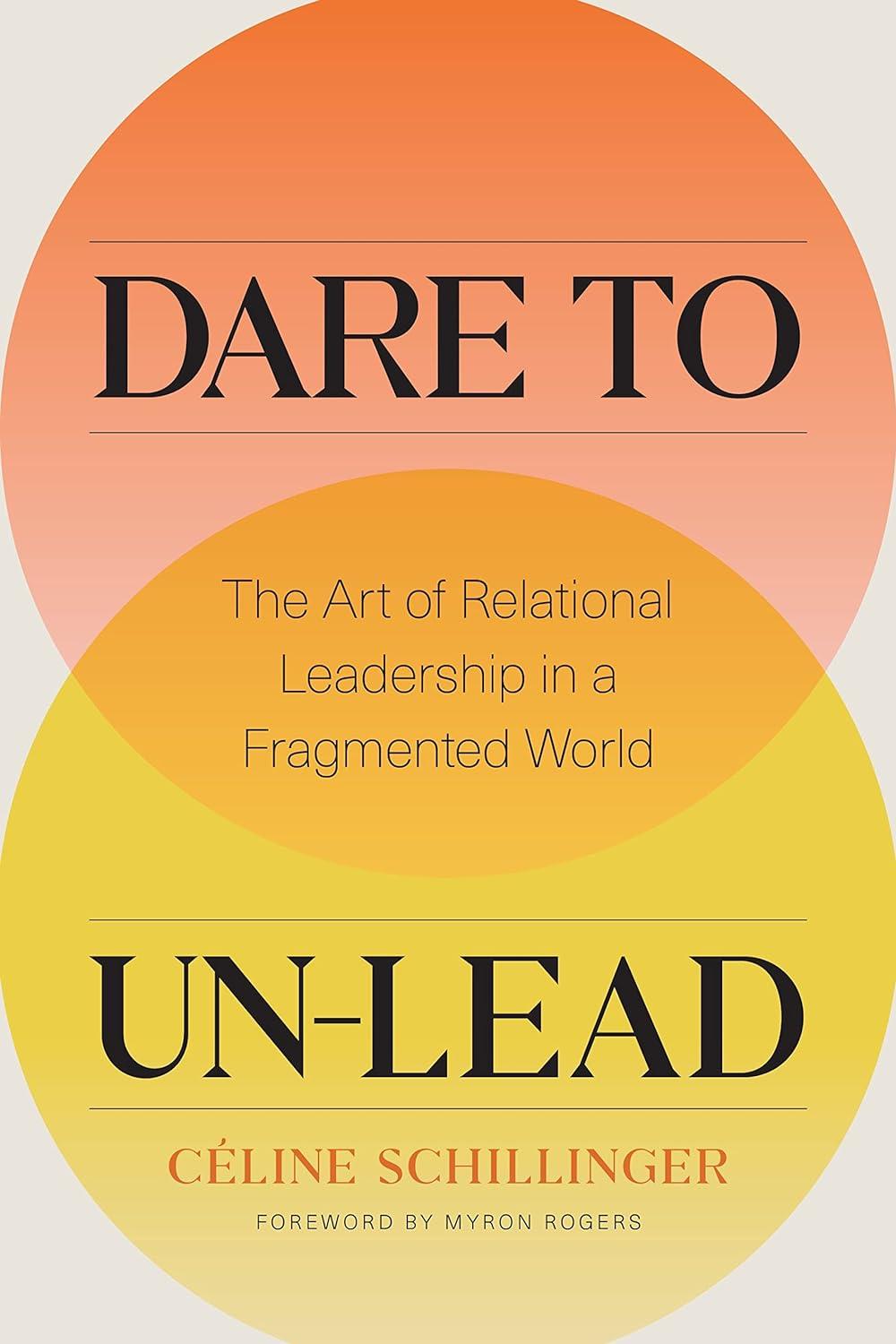Lucidea’s Lens: Knowledge Management Thought Leaders Part 50 – Céline Schillinger

Stan Garfield

Céline Schillinger is Founder and CEO of We Need Social and author of Dare to Un-Lead: The Art of Relational Leadership in a Fragmented World. A global engagement influencer, Céline helps leaders and organizations succeed and grow by engaging their clients, partners, and employees. Engagement is the active mobilization of many talents, to deliver value together. This requires new leadership methods, tools, and behaviors. A change activist and social collaboration leader, she specializes in engagement leadership, mobilization, and community building in international environments. Based in Lyon, France, Céline is a TEDx speaker and a recipient of the National Order of Merit.
Education
- CELSA Paris-Sorbonne – Professional Master, Corporate Communications, 1990 – 1992
- Sciences Po Bordeaux – Master’s Degree, Political Science, 1987 – 1990
Experience
- We Need Social – Founder and CEO, 2018 – Present
- Change Agents Worldwide – Charter Member, 2013 – Present
- Sanofi Pasteur, 2001-2018
- Head, Quality Innovation & Engagement
- Senior Director, Stakeholder Engagement
- Director, Commercial Operations, Asia & other int’l areas
- Director, Human Resources, International
- Lagardere Group
- Lagardere Media – General Manager, China, 1999 – 2000
- Matra Systems & Information – Sales Manager, Asia, 1997 – 1999
- Setraco – Country Manager, Vietnam, 1993 – 1997
- Lisa Engineering – Communication & Public Relations Manager, 1991 – 1992
Profiles
Books
Dare to Un-Lead: The Art of Relational Leadership in a Fragmented World

Our Journey to Corporate Sanity Quote Book
Changing the World of Work. One Human at a Time
Content
Podcasts
- Dare to Un-Lead
- Guest Appearances
- Creating Organizational Capacities: Networks, Leadership, and Community
- How Community Building Can Go Beyond Language
- Engagement and Community – The Days of Change
- Relational and engagement leadership – The Brand Called You
- World’s Greatest Business Thinkers #1 – the importance of digital and social networks in modern day organizations; Community leadership and how to embed it in your organization
- Connected Innovators and Humble Rebels – Women Who Innovate – how sending one email led to transformation of a more gender balanced corporate culture; how companies need to become more social to engage their audiences and grow their business; the importance of community; how social networks enable human networks and social impact; how social engagement at scale, speed, and agility, frees the rebels; value those who see things differently
Videos
- We Need Social
- YouTube
- Interviews
- Enterprise 2.0 Summit 2014 Interview
- Impossible Things with David Terrar – community building, social media, collaboration, digital change, engagement, team building, and leadership
- Forget social networks, think social impact – TEDxBedminster
Presentations
Articles
- Using quality as a lever for transformation
- Focus On Your Purpose, and Everything Changes
- Do You Dare To Un-Lead?
- Enterprise 2.0 Summit Interview
- How We Need to Adjust to the Future of Work by Karen Mangia
- The art of relational management in a fragmented world by Stowe Boyd
- Forty Over 40 – Using Innovative Social Media Approaches to Disrupt Industry and Save Lives
- Redefining Leadership: Authenticity, Diversity, and Collective Intelligence by Selda Schretzmann
2022 Internet Time Alliance Award Winner
The Internet Time Alliance Award, in memory of Jay Cross, is presented to a workplace learning professional who has contributed in positive ways to the field of Informal Learning and is reflective of Jay’s lifetime of work.
Recipients champion workplace and social learning practices inside their organization and/or on the wider stage. They share their work in public and often challenge conventional wisdom. The Award is given to professionals who continuously welcome challenges at the cutting edge of their expertise and are convincing and effective advocates of a humanistic approach to workplace learning and performance.
Following his death in November 2015, the partners of the Internet Time Alliance – Jane Hart, Charles Jennings, Clark Quinn, and Harold Jarche – resolved to continue Jay’s work. Jay Cross was a deep thinker and a man of many talents, never resting on his past accomplishments, and this award is one way to keep pushing our professional fields and industries to find new and better ways to learn and work.
The 7th annual Internet Time Alliance Jay Cross Memorial Award for 2022 is presented to Céline Schillinger. In her recent book, Dare to Un-lead, Céline asks, “Can there be liberty, equality, and fraternity at work?” Then she shows examples of how this can be achieved. As Head of Quality Innovation & Engagement at Sanofi Pasteur Céline helped to create the ‘Break Dengue’ global community to fight dengue fever. Céline understands the power of community. She says that “If you cannot find a community of practice for your professional development, then create one.” Céline has often challenged the status quo, especially regarding the lack of diversity in many workplaces.
“What really matters is to mirror the diversity of the world we serve. We need more women… more humanities majors… more people of color… more professionals coming from other jobs… in short, a much bigger diversity of viewpoints at all levels. We also need more network and co-construction across levels, as the old pyramidal system is no longer fit for purpose.” Céline has said that companies must cultivate their rebels in order to remain relevant to their workers, while staying competitive in their arenas. These rebels can let them see beyond the organization’s walls. We are sure that Jay Cross would agree.
10 steps HR could take to really be at the forefront of change & improvement
- Focus on groups rather than individuals.
- Focus on people opportunities rather than people problems.
- Actively expand knowledge of what could be different.
- Experiment more.
- Focus on community members – and the frontline – rather than tops of pyramids.
- Build the courage muscle.
- Evolve perceptions of what leadership truly is.
- Reduce effort spent at rigidifying structures.
- Resist the urge to follow trends.
- Think twice (or more) before cracking down on change agents.
Knowledge Management by Ana Neves
Q: You write about knowledge sharing and retention, mostly in the context of communities. I see those as two knowledge processes which should be addressed as part of strategic knowledge management. What is Knowledge Management for you?
A: Throughout my career, I have experienced two main types of knowledge management.
- The classic approach, based on taxonomy, delineations, authorizations, education, storing information… It is certainly necessary, but unfortunately it serves a very outdated conception of the work group, it is very boring, and it gets contradicted by each redundancy plan aimed at senior employees – where we observe that reducing personnel costs is always a priority over knowledge management.
- The other approach I have seen work is to make people want to do things together. It is based on engagement, on creating favorable conditions for connection and exchanges. This approach is extremely beneficial to enterprise knowledge, which circulates and increases at all levels: within communities of practice, volunteer networks, the enterprise social network, etc. I think that it is in our interest to develop it, and I hope that my book will give some ideas in this direction.
Q: Is knowledge an ingredient of change or is better knowledge an outcome of change?
A: I think it’s more of an outcome. We often mistakenly believe that knowledge generates change, but knowledge does not exist as such, there is knowledge that makes sense to people and not to others; there are interpretations; there are times when we are open to certain knowledge, and others when we are not. This is why pushing knowledge on people, trying to convince them with information, is insufficient – even counterproductive. At the origin of change, there are stories, collective representations, a connection process. From these comes knowledge
Three Ways Social Media Make You a Better Leader
1. Better decisions through easier access to unfiltered information
Using social media is one way to overcome the barriers to information. This is particularly important for senior leaders whose accessible information gets shaped by numerous filters. Be it competent and well-intended, or self-protective and risk averse, CEOs’ entourage form a distorting bubble. Ever wondered about the perception gap between managers and employees? Or the service gap? A personal use of internal and external social media balances the bubble effect, enabling leaders to grasp the reality on the ground in a fast, continual, and accurate way.
But the positive effect goes well beyond executives’ increased awareness. By role modelling curiosity for unfiltered information and by exchanging thoughts and ideas directly through social media, leaders give symbolic “permission” to their organization to do the same. From there, information flows increase, liberated from obsolete precedence or secrecy rules. This is critical to success for the large, global, complex systems that our organizations have become. Businesses can’t afford to wait for information to reach the “right person” at the right time. Myron Roger writes that “The easier access to information is, the richer it becomes – and the better decisions are.
2. Better business performance through relational engagement
The world of business has become more relational than ever. Brian Solis writes, “Brands are co-created by consumers through shared experiences.” Work, according to Esko Kilpi, “is increasingly understood as “interaction” rather than “job” or “organizational activity” – even leadership is contextual and relational.”
Thus, relationship building is now a required core competency for all professionals – and for senior leaders in particular. We’re not talking about just transactional relationships based on status codes, the organizational hierarchy or reciprocal exchange. We mean connections that arise within communities, born from a shared sense of belonging, acknowledgment of emotions and co-creation of work. This is what really engages consumers and employees.
3. Better odds to succeed with transformation through mindset change
The use of social media is often described as transformative for good reasons. These new channels generate new types of interaction – they create new ways to relate to one another. This is why it is fundamentally experiential and cannot be delegated without dampening its impact.
Social media evolves collective identity from “territory” to “network.” This enhances the capacity to welcome diverse input. As a result, culture becomes reflective of more voices and becomes more capable of synchronizing with the complexity of the world to transform disruptions into opportunities.
When some leaders at Sanofi Pasteur, the vaccines division of a multinational pharmaceutical company, decided to get personally involved in an internal online community, the result was unprecedented improvement of the company’s manufacturing quality worldwide. Every week, they interacted directly with the broader employee community on the social network: asking questions, sharing insights, recognizing achievements, and “liking” posts. Just a few minutes each week had a huge positive impact on their own perception, their leadership, and the flows of knowledge between employees.

Stan Garfield
Enjoy Stan’s blog posts offering advice and insights drawn from many years as a KM practitioner. You may also want to download a free copy of his latest book for Lucidea Press: Knowledge Nuggets: 100 KM Infographics. Learn about Lucidea’s Presto, SydneyEnterprise, and GeniePlus software with unrivaled KM capabilities that enable successful knowledge curation and sharing.
Never miss another post. Subscribe today!
Similar Posts
Lucidea’s Lens: Knowledge Management Thought Leaders Part 79 – David Garvin
KM expert David Garvin was a proponent of organizational learning to counter unpredictability in market forces and technology advances.
Lucidea’s Lens: Knowledge Management Thought Leaders Part 78 – Carl Frappaolo
KM expert Carl Frappaolo was the creator of Delphi’s Knowledge Management Methodology (KM2)
Lucidea’s Lens: Knowledge Management Thought Leaders Part 77 – Leif Edvinsson
Leif Edvinsson, Professor Emeritus at Lund University in Sweden, specializes in Intellectual Capital Management of Enterprises, Cities, and Nations
Lucidea’s Lens: Knowledge Management Thought Leaders Part 76 – Seth Earley
Seth Earley works in cognitive computing, knowledge engineering, data management systems, taxonomy, ontology, and metadata governance strategies.

Leave a Comment
Comments are reviewed and must adhere to our comments policy.
0 Comments